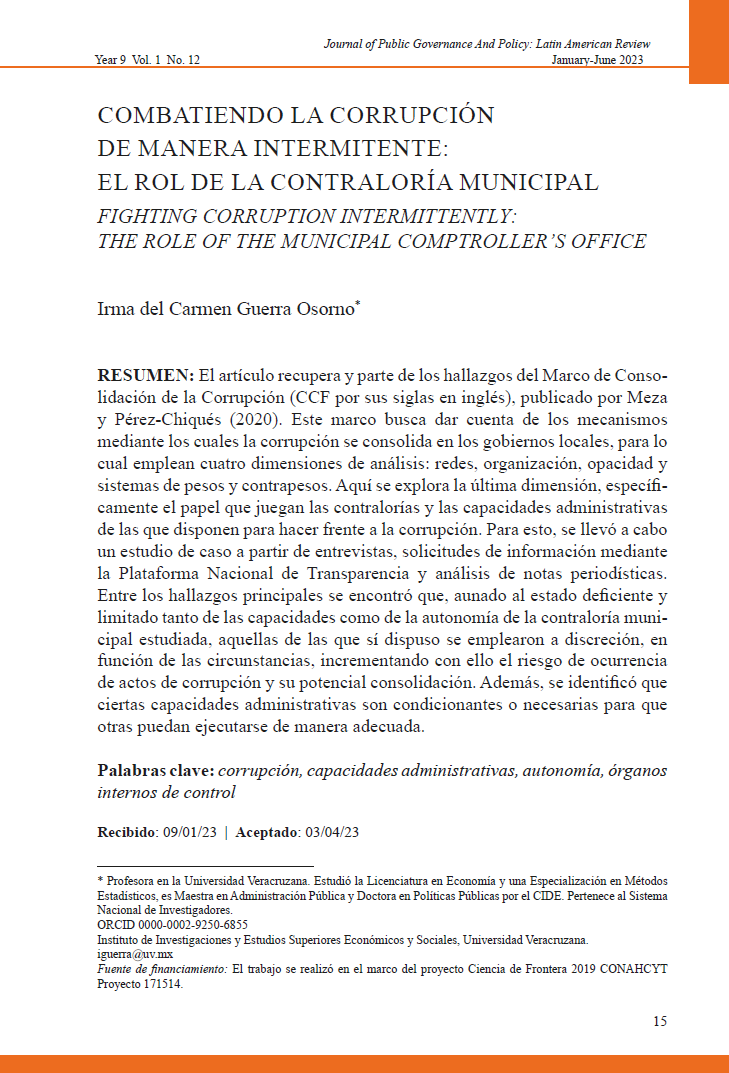Combatiendo la corrupción de manera intermitente: el rol de la contraloría municipal
Keywords:
corruption, administrative capacities, autonomy, internal control unitsAbstract
The article recovers and departs from the findings of the Corruption Consolidation Framework (CCF), published by Meza and Pérez- Chiqués (2020). This framework seeks to account for the mechanisms through which corruption is consolidated in local governments, for which four dimensions of analysis are used: networks, organization, opacity, and systems of checks and balances. The last dimension is explored here, specifically the role that comptrollers play and the administrative capacities they have to deal with corruption. For this, a case study was carried out based on interviews, requests for information through the National Transparency Platform and analysis of journalistic reports. Among the main findings, it was found that, coupled with the deficient and limited state of both the capabilities and autonomy of the municipal comptroller’s office studied, those that were available were used at discretion, depending on the circumstances, thereby increasing the risk. Occurrence of acts of corruption and their potential consolidation. In addition, it was identified that certain administrative capacities are conditioning or necessary so that others can be executed adequately.
Downloads
Published
How to Cite
Issue
Section
License

This work is licensed under a Creative Commons Attribution-NonCommercial-ShareAlike 4.0 International License.




